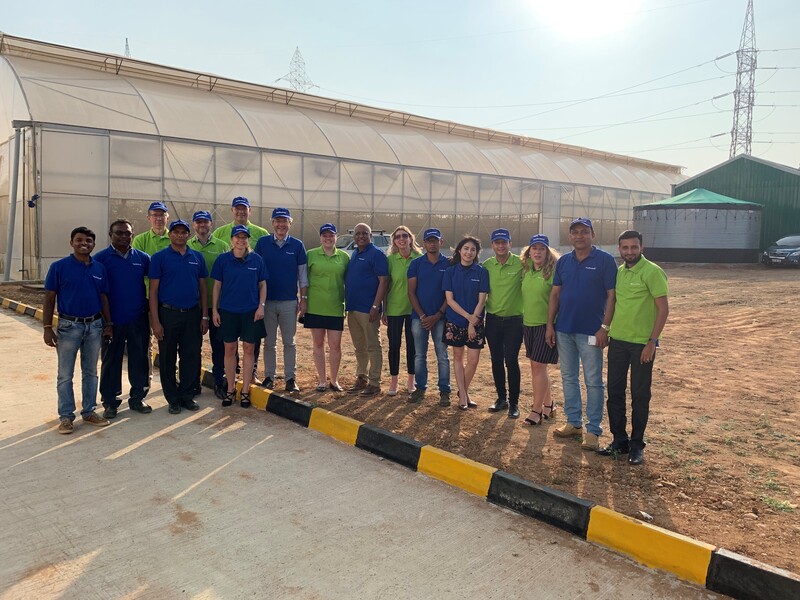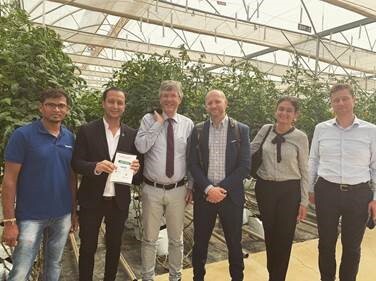
Food waste
In India, fruit and vegetable wastage is mainly due to poor technology and training; inefficient methods of harvesting, packaging and transportation; and too many gaps in the cold chain to maintain freshness and quality of produce. Due to a lack of access to well-organized supply & cold chain, Indian farmers miss opportunities to market their fresh produce and increase their income.
India currently needs to secure the provision of food and nutrition for 1,3 billion people; and this is expected to increase to 1,6 billion people by 2050. As much as 18% of the country's fruit and vegetables goes to waste annually. One of the key solutions to this challenge is reducing agricultural food wastage along the entire value chain.

A consortium of Dutch companies, FoodTechIndia and HortiTechIndia, – of which Koppert India is a partner – the Dutch government and leading Indian retailer, Future Group, launched an ambitious agricultural project and opened a demonstration polyhouse in Tumkur, Karnataka, India on Friday, 18 January.
The aim of the project is to reduce food waste in India through the establishment of an improved supply and cold chain, as well as showing Indian growers how Dutch technology and knowledge can help them improve crop quality and yield through sustainable practices.
The project initiators and the Consul General for the Netherlands, Gert Hijkoop, were present at the launch of the consortium project which was attended by some 100 local smallholder farmers and a number of local government officials.
Koppert's role
Koppert India will be supporting this consortium project by training local farmers and advising them on the best agronomy practices, improving food quality and security by introducing them to sustainable pest and disease control, and reducing the use of chemical agents. The project is aimed at smallholder farmers and Koppert will focus on enabling sustainable, inclusive economic growth. It will do so by developing train-the-trainer programmes with the ultimate goal of training 10,000 farmers in this region of southern India.
'Our programme will help vegetable growers to enter the high quality market for which retailers now demand quality, safe produce," says Export Manager North Africa, Middle East and India, Yassin Lahiani. "It is important that these growers see the benefits of sustainable farming practices, but also have their sights set on the whole chain to be able to meet the demands of retailers.'